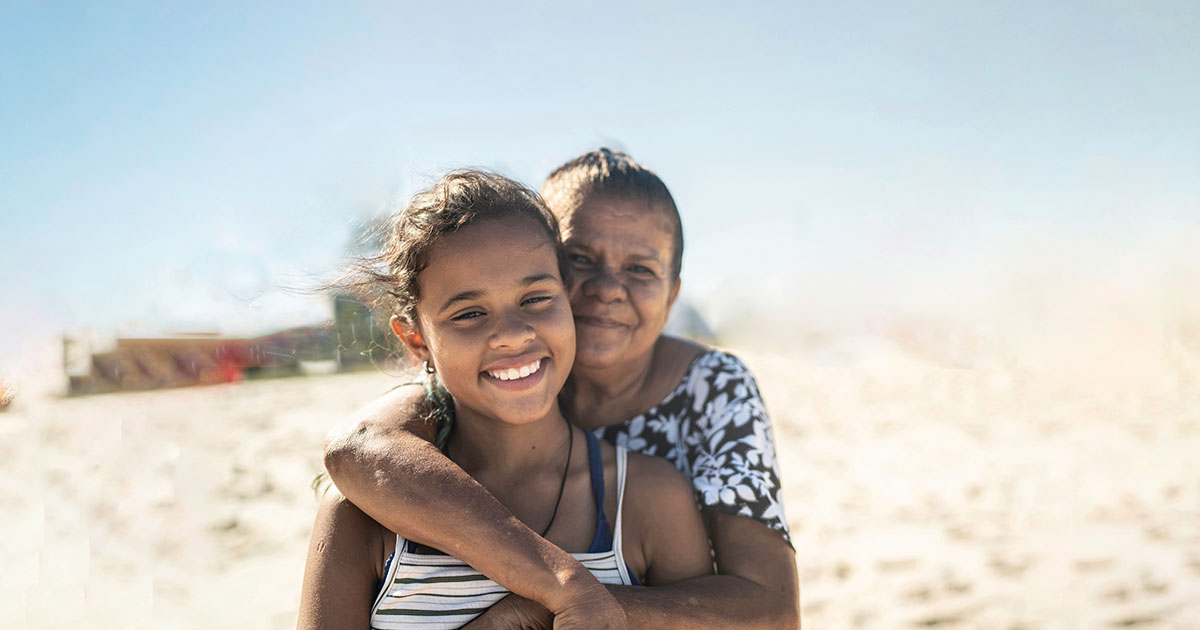We must do more to end violence in the home
- Details
During May, we recognise Domestic Violence Prevention Month, where we raise community awareness of the social and personal impact of domestic and family violence and the supports available to those affected.
Domestic and family violence as an issue has gained increasing media attention and public awareness. We continue to see accounts in the media which put a spotlight on the violence women still face in their day-to-day lives. We have also seen some national policy commitments responding to calls from people across Australia to take action.
While it is encouraging to see this critical and widespread problem start to emerge from the shadows, it is unacceptable that domestic and family violence remains at such high levels in Australia.
The statistics are still alarming. One woman a week and one man a month in Australia dies due to domestic and family violence. We also know that 16% of women (1.5 million) and 5.9% of men (528,8010) have experienced violence from a partner since they were 15.1
Domestic violence is still a leading cause of homelessness, particularly for women and children. The problem is so bad that 121,000 people who had experienced domestic and family violence sought help from specialist homelessness services last year.2 While domestic and family violence can affect anyone, overwhelmingly, violence perpetrated by men against women is most common. This leaves women and children at great risk of homelessness.
We all agree that no one should be forced to stay in a violent home to keep a roof over their child’s head. Yet, we know that there are thousands of families in Australia who are doing just that, or have been pushed into homelessness because their home is no longer a safe place to live.
Enough is enough. We cannot let this be the end of the story.
As a police officer and social worker in the United Kingdom and whilst living and working in Australia, I have seen the devastation that domestic and family violence brings to families and communities. Now as the CEO of an organisation committed to ending homelessness, I know that to have any hope of doing so, we must prioritise preventing and addressing domestic and family violence.
Financial constraints and a lack of affordable housing options impact on a person’s decision to leave an abusive relationship. Leaving a violent home is already a very challenging and unsafe time, so with added financial uncertainty, this can make this seem almost impossible for many who are in this situation.
In April this year, Mission Australia released our most recent report on domestic and family violence and homelessness, drawing together the research, stories of victim-survivors, service provider wisdom and evidence-based recommendations which would help solve this insidious national issue.
Having appropriate and affordable accommodation is part of the immediate solution. Emergency accommodation provides immediate safety, but what remains lacking is access to permanent safe homes for victim-survivors and their children to prevent and address homelessness when violence does occur. It’s undeniable that we need more social and affordable homes.
Mission Australia has remarkable staff who work with victim-survivors and perpetrators of domestic and family violence every day. It is challenging work and I want to thank them for their perseverance and compassion in sometimes harrowing circumstances.
Above all, I want to acknowledge the victim-survivors of domestic and family violence and their enormous resilience and courage. We stand beside them in advocating for much needed change. We have highlighted some stories of resilience on the domestic and family violence page on our website and you may have also seen the true story from our latest fundraising appeal.
As a society, we must listen to these stories and make the tough changes needed to redress gender imbalances, provide coordinated and therapeutic responses, improve economic security and ensure there are a range of housing options.
Addressing both domestic and family violence and homelessness is a vital part of Mission Australia’s work through both direct service provision and by being a courageous voice for change. We continue to add to the many voices calling for more universal prevention, better responses to violence and a national strategy to end homelessness that takes into account the drivers of homelessness and ensures everyone has a safe place to call home.

James Toomey
CEO Mission Australia
@jbc_toomey
Know someone affected by domestic and family violence?
If you are experiencing abuse or violence it is not your fault. There are support services that can help you. If your life is in danger, call 000. For 24/7 domestic violence counselling call the National Sexual Assault, Family & Domestic Violence Counselling Line on 1800 RESPECT (1800 737 732).
Where to get help
Acknowledging that one of your relationships may be unhealthy or potentially harmful can be overwhelming to cope on your own. It can also be difficult to see the bigger context when trying to look at a relationship outside of our own lens. Whether it’s a relationship you need help navigating, a behaviour you want to change or advice to support a loved one involved in an unhealthy relationship, reach out to:
- If your life is in danger, contact emergency services on 000 immediately.
- Lifeline —13 11 14 or chat online.
- MensLine Australia —1300 78 99 78.
- Relationships Australia — 1300 364 277.
1Australian Bureau of Statistics (2017), Personal safety, Australia, 2016, cat. no. 4906.0, Canberra: ABS, accessed at http://www.abs.gov.au/ausstats/[email protected]/mf/4906.0.
2AIHW (2018) Family, domestic and sexual violence in Australia, 2018
Related media releases
Read about what we’ve been working on, our stance on important social issues and how you make a difference to vulnerable Australians' lives.



